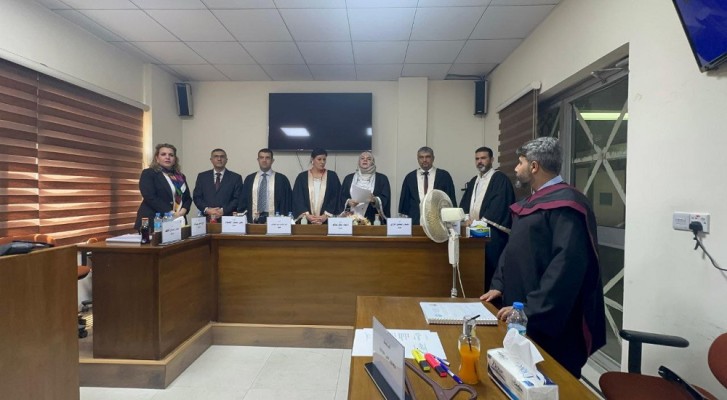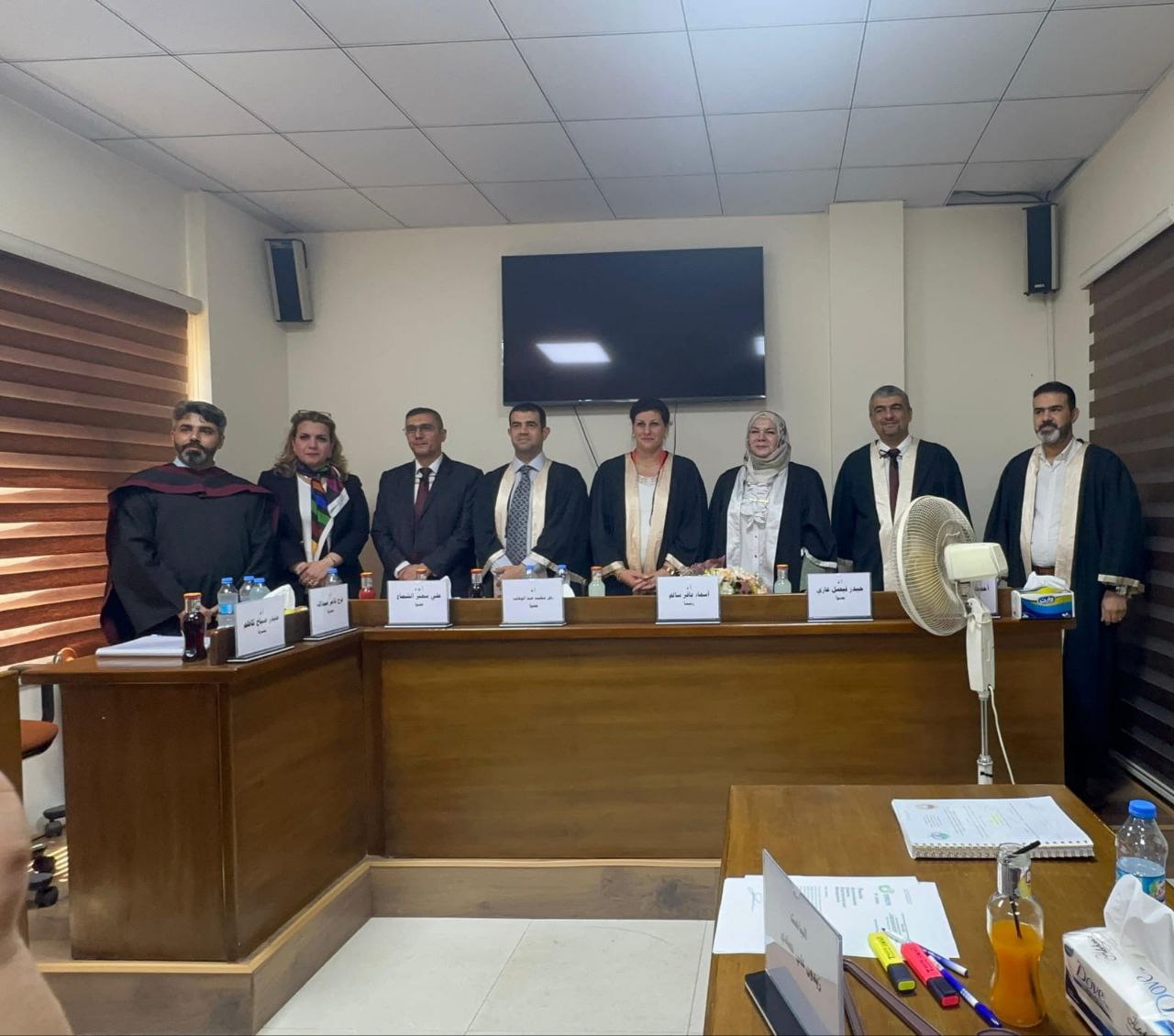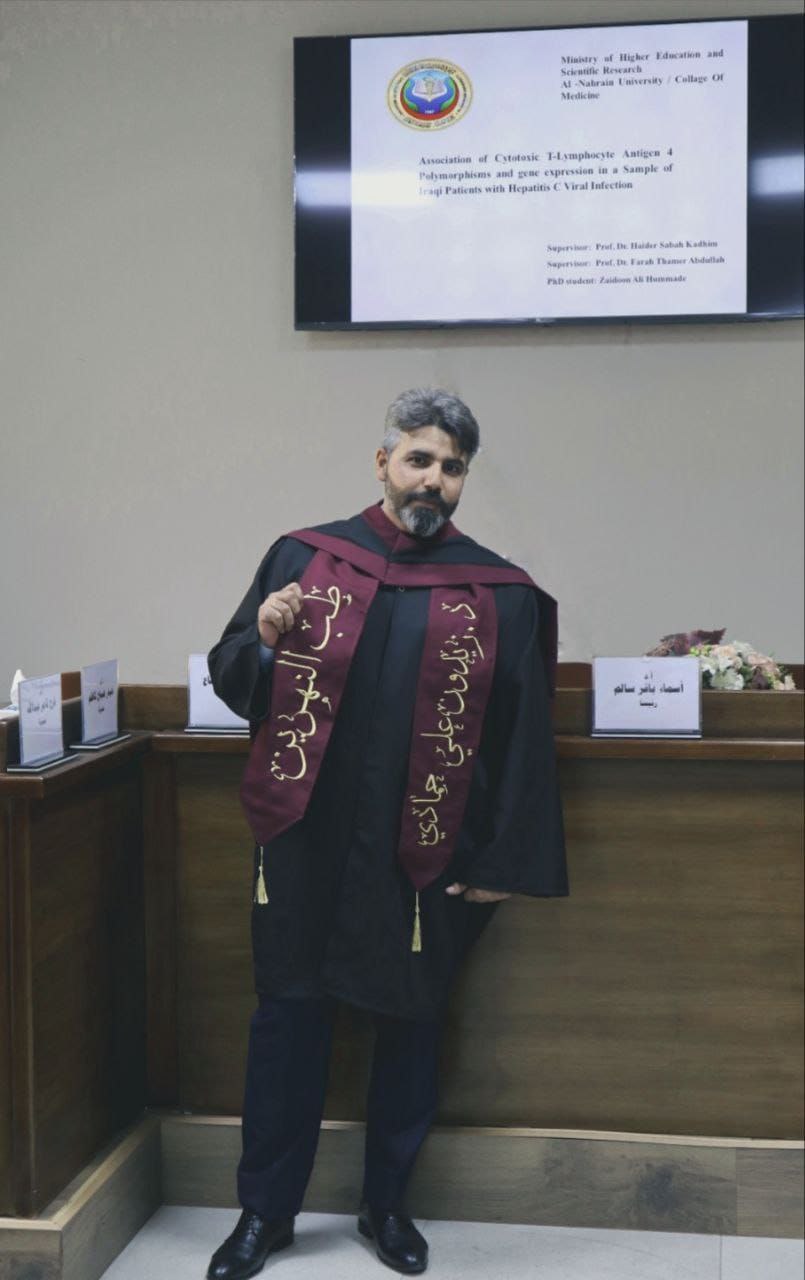
The PhD defense of "Zaidoun Ali Hammadi" was held on Wednesday, June 26, 2024, at 10:00 AM in the Department of Microbiology at the College of Medicine - Al-Nahrain University, for his dissertation titled:
Association of Cytotoxic T-Lymphocyte Antigen 4 Polymorphisms and Gene Expression in a Sample of Iraqi Patients with Hepatitis C Viral Infection
Under the supervision of:
Prof. Dr. Haidar Sabah Kazem, Microbiology, College of Medicine, Al-Nahrain University
Prof. Dr. Farah Thamer Abdullah, Immunogenetics, Biotechnology Research Center, Al-Nahrain University
The defense committee consisted of:
1. Prof. Dr. Asmaa Baqir Salem, Microbiology - Virology, College of Medicine, Al-Nahrain University
2. Prof. Dr. Ahmed Hassan Mohammed, Microbiology - Virology, College of Science, University of Thi-Qar
3. Prof. Dr. Haidar Faisal Ghazi, Microbiology - Immunology, College of Medicine, Al-Nahrain University
4. Prof. Dr. Rafil Shakeeb Abdulwahab, Biotechnology, College of Pharmacy, Al-Nahrain University
5. Assist. Prof. Dr. Ali Sameer Al-Shammaa, Internal Medicine - Gastroenterology, College of Medicine, Al-Nahrain University
The study included a total of 100 cases of Hepatitis C Virus (HCV) infection compared to 50 healthy individuals.
The dissertation aimed to investigate the potential impact of genetic mutations in the regions (CTLA-4 -319 C/T), (CTLA-4 49 A/G), (CTLA-4 – 1722 T/C) of the CTLA-4 gene on gene expression levels, as well as to explore the potential effect of these mutations on the regulatory role of CTLA-4 on immune regulators such as PD-1, PD-L1, and PDL-2.
The study concluded that:
1. The single nucleotide polymorphisms (SNPs) tested in the CTLA-4 gene did not have a direct impact on gene expression levels, as no statistically significant associations were identified.
2. There was no direct effect of HCV infection on the soluble form of the CTLA-4 antigen levels in the serum of infected patients.
3. The level of the soluble form of the CTLA-4 antigen in the serum of infected patients was positively correlated with immune regulators (PD-1, PD-L1, PDL-2), with significant statistical associations.
4. The allelic patterns of the polymorphisms in the region (+49A/G rs231775) showed a statistically significant association with complications related to HCV in infected patients compared to the control group.


|